Overview
Our market research programme monitors the mood of the nation relating to climate change, energy emissions and efficiency, and topics like electric vehicles. Every quarter, we survey 750 adult New Zealanders to track their beliefs, behaviours and attitudes to energy use and climate change.
This survey canvassed New Zealanders from April – June 2022.
Findings
During the course of this survey, the government made major announcements about climate change in New Zealand, with the release of the Emissions Reduction Plan (ERP) and its accompanying Climate Emergency Relief Fund (CERF) in May. These announcements put climate change back on the agenda for many New Zealanders, however economic issues are still top of mind.
The high cost of living, particularly high petrol prices, is encouraging Kiwis to think about their transport choices – consideration of EVs and understanding of the impact of using of petrol/diesel vehicles have both peaked in this quarter, and it seems we’re approaching an EV tipping point, while at the same time seeing an increasing interest in mode shift.
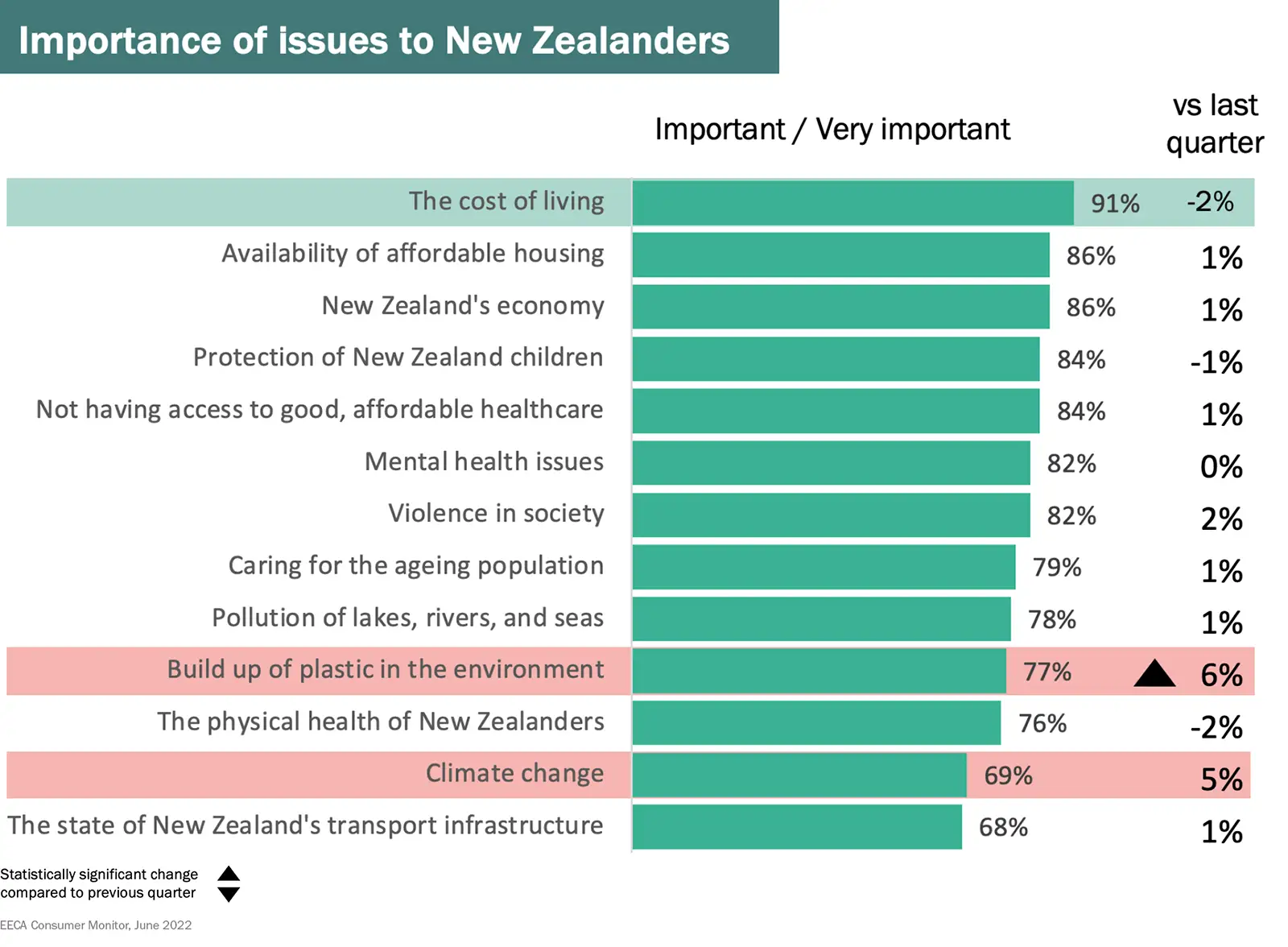
Transport and climate change
The survey shows that attitudes and behaviours around transport are changing, no doubt influenced by fuel prices, but also a growing recognition that transport makes up over 20% of the country’s total emissions, and reducing fossil-fuelled transport is a high-impact climate action.
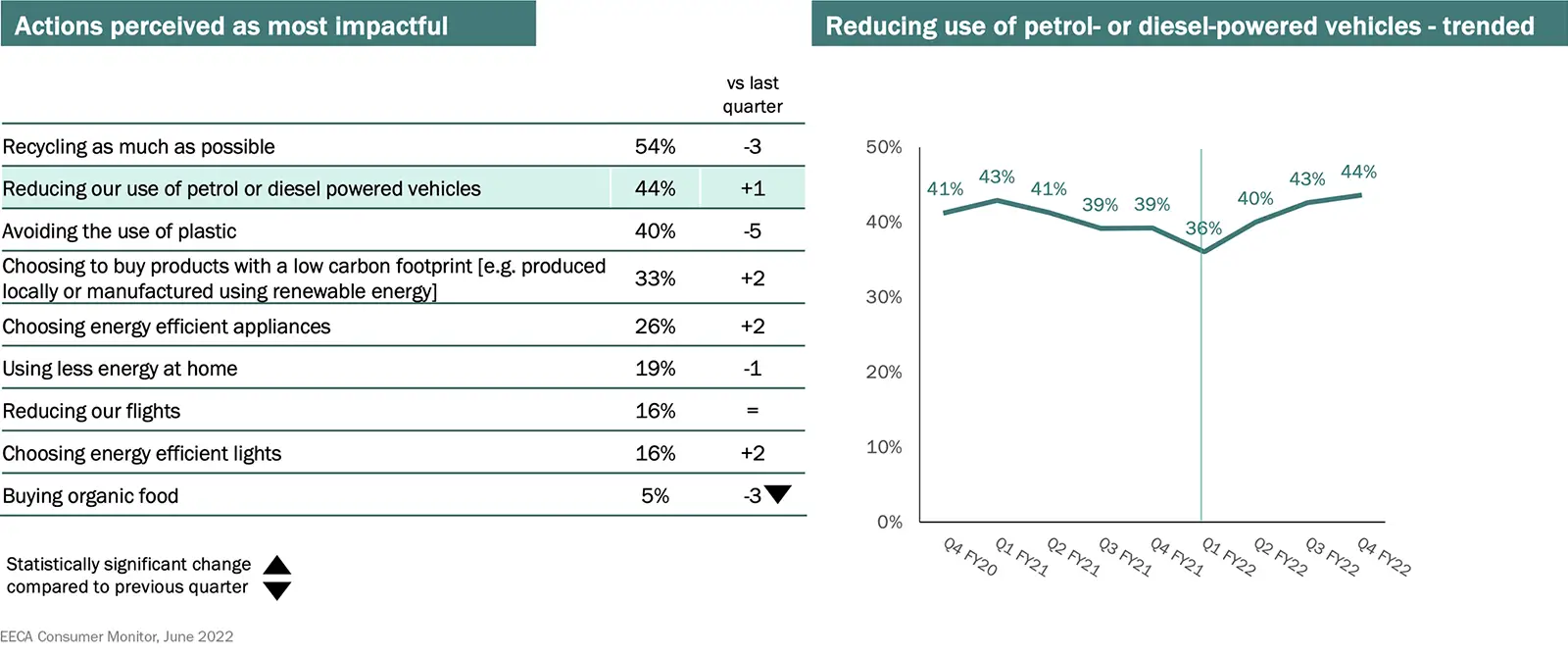
The EV tipping point
Consideration of electric vehicles is at its highest ever, and consideration for petrol vehicles at its lowest. If these trends continue at the same rate, we should see that by the end of 2024, EV consideration should overtake that of petrol vehicles.
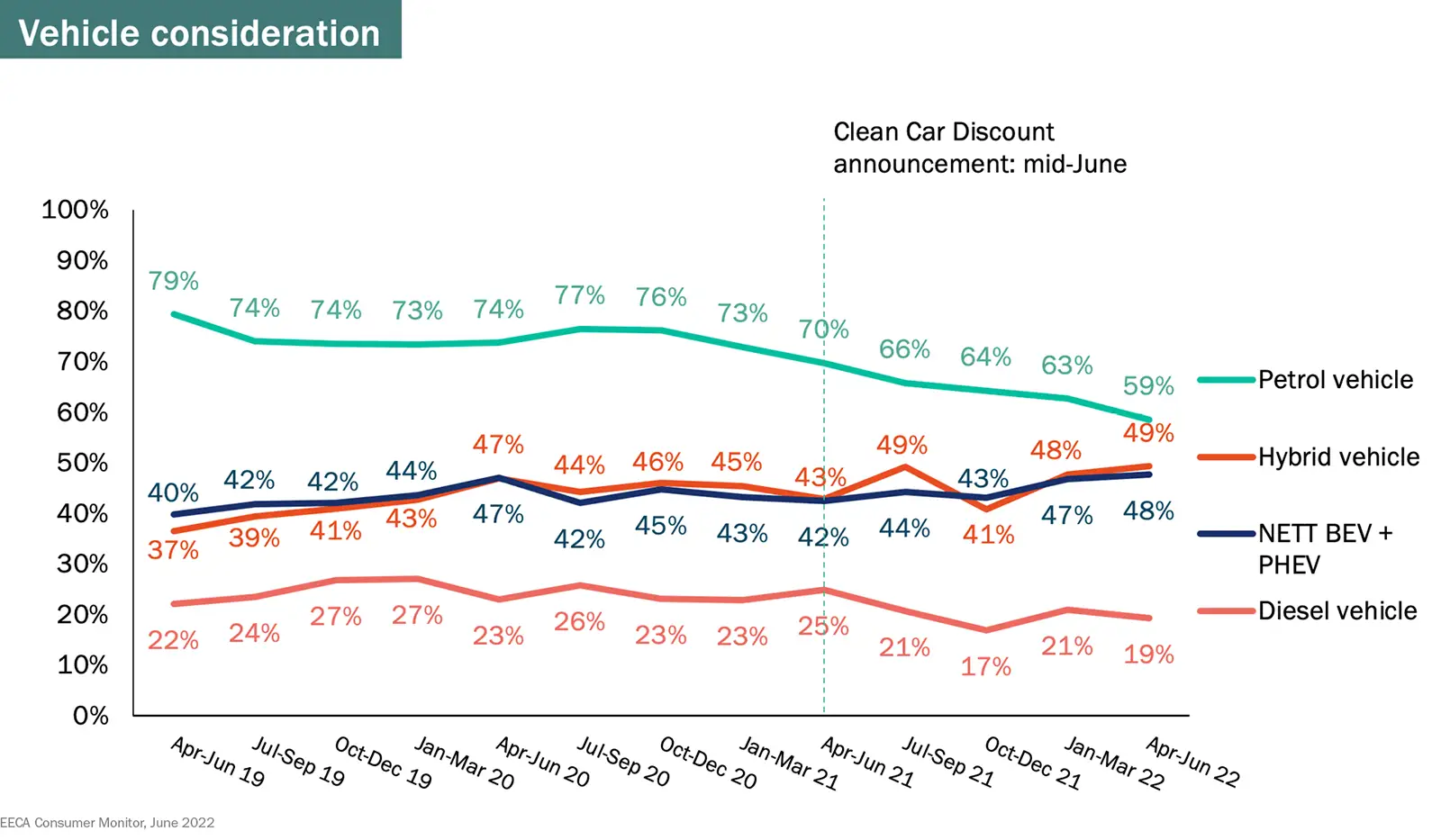
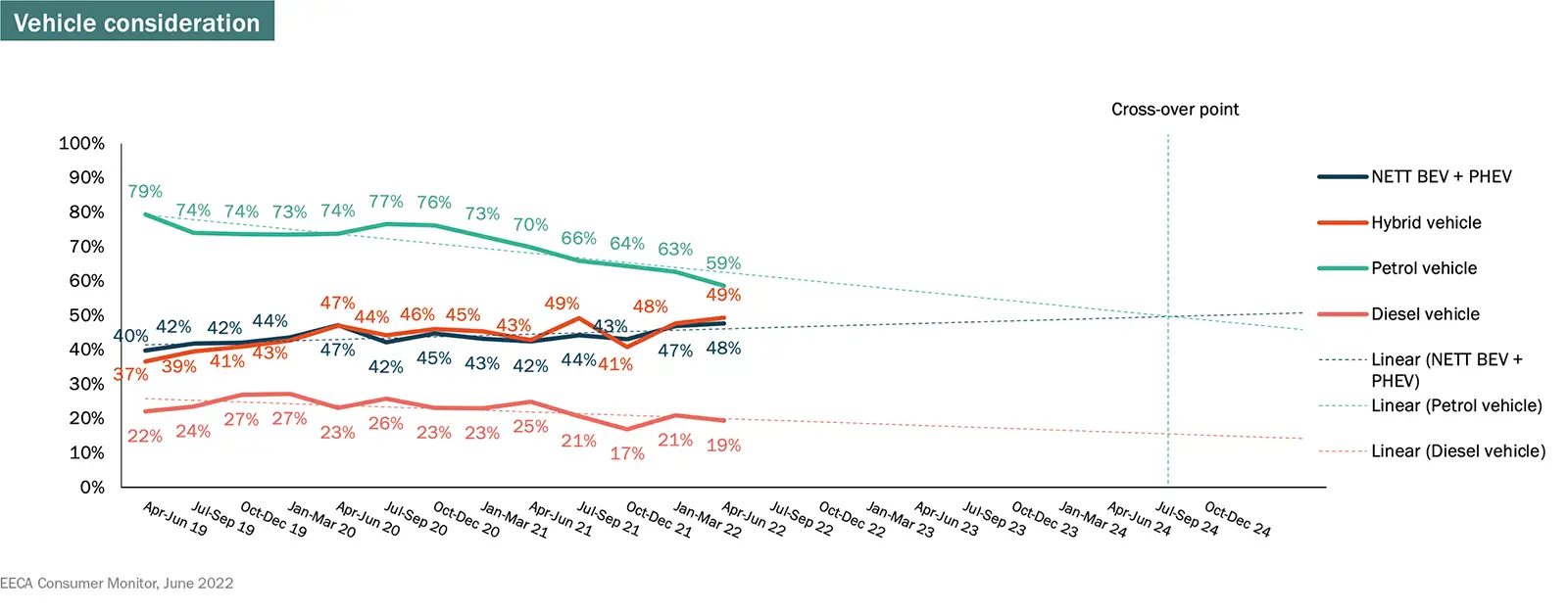
We’re driving less
The number of people who report driving at least once a week has dropped from 82% in July 2021 to 77% this quarter. And 47% say they’d like to cut down on their car trips, up from 44% in the same period. While 65% say that getting around by car is the only feasible option for them, there’s strong appetite to change that: 40% would like to use public transport more, and 50% would like to use active modes, like walking and cycling, more.
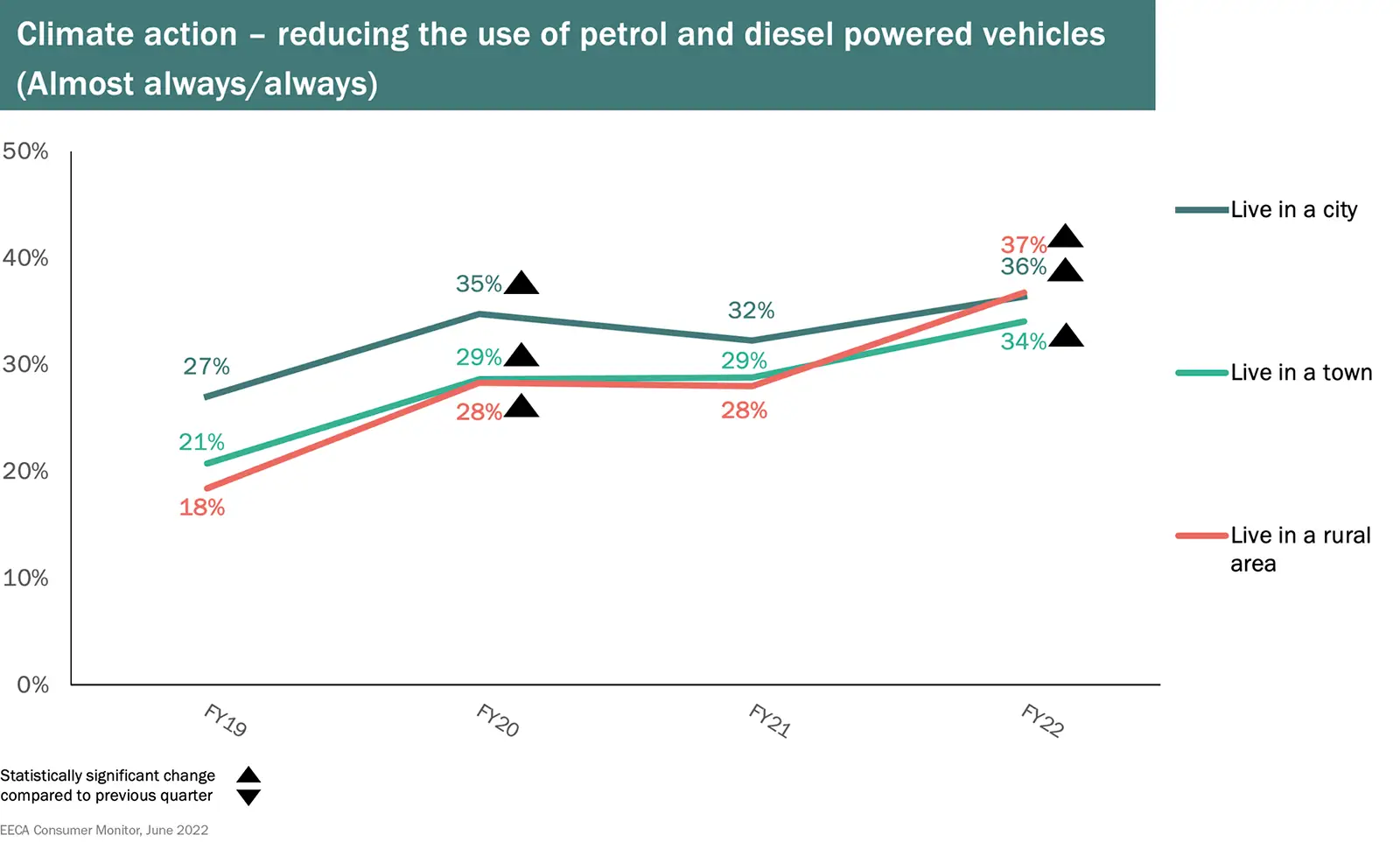
Download previous reports
Read more EECA insights
-
Public attitudes and action on energy and climate change: Dec 2021
Every quarter, we survey 750 adult New Zealanders to track their beliefs, behaviours and attitudes to climate change and energy. What we’ve found is there is real and urgent need to mobilise New Zealanders around climate change.
- Market research
-
Exploring how New Zealanders relate to energy use and climate change
A look at the impact culture, age, gender, regionality and income has on our attitudes and behaviours.
- Market research
-
Climate change and New Zealand business: May 2022
EECA's twice-yearly insight into how the business sector is responding to climate change.
- Market research
